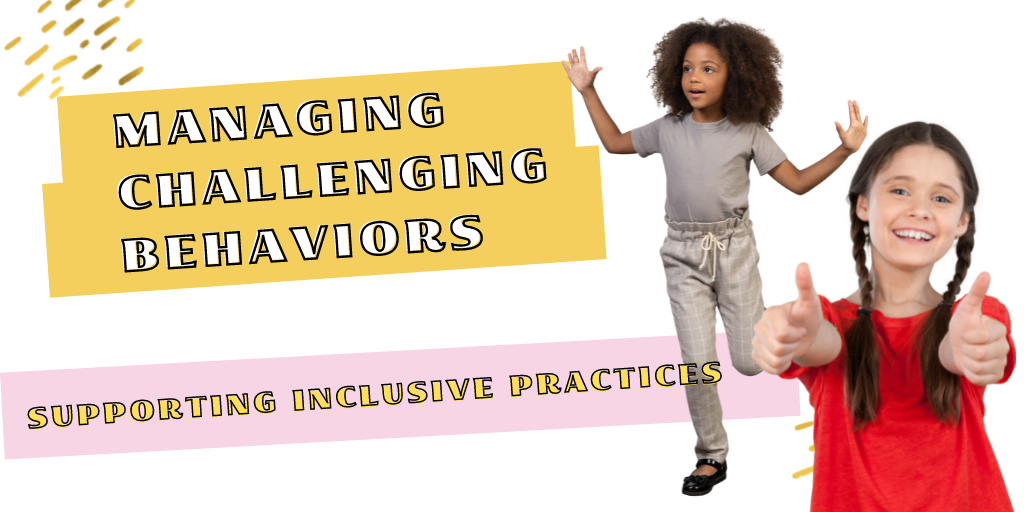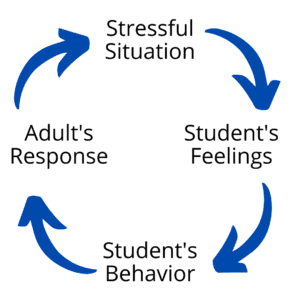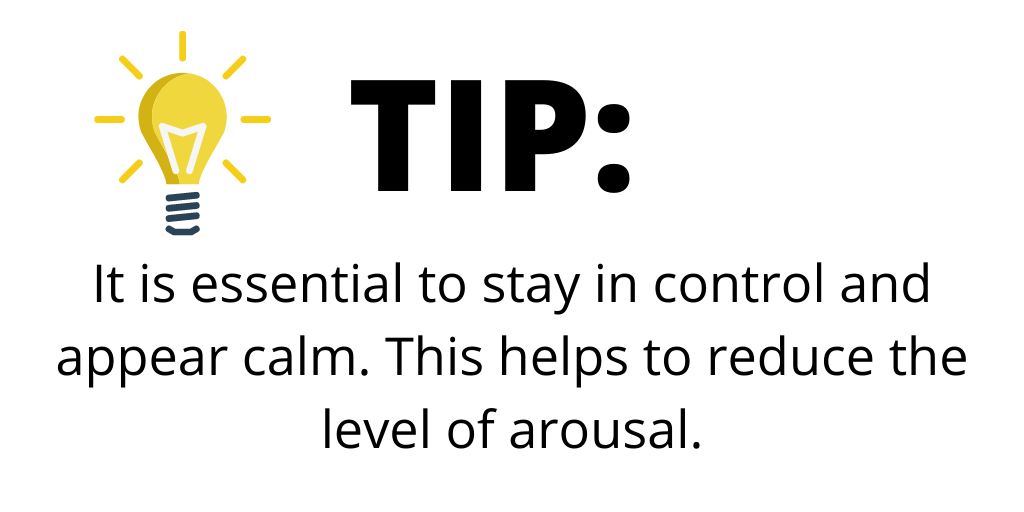Managing Challenging Behaviors (Part One)

As a part of a series with Supporting Inclusive Practices our Co-Founders and Principals presented information on managing challenging behaviors. This part 1 of the series gives some basic information to consider when managing any challenging behavior. Be sure to follow the series as we progress!
First, the definition of a crisis: when a person’s inability to cope (lack of skills, or poor use of skills) results in a change in behavior (agitation, escalation, aggression)* Here is a look at the classic crisis cycle we see:

Think of a time when you witnessed a student upset, yelling, argumentative, or threatening.
What behaviors did you observe? How did the student’s crisis make you feel? Did they eventually calm?

Four questions we ask ourselves before intervening:
1- What am I feeling now?
2- What does this student feel, need or want?
3- How is the environment affecting the situation?
4- How do I best respond?
Strategies to consider before responding…
- Try managing the environment: change your tone, facial expression, body language or moving student out of room.
- Use prompting as appropriate: least to most and know your student’s limits.
- Make a caring gesture
- Hurdle help: curve the negative behavior before it begins (know precursors, etc.)
- Redirection and distractions
- Proximity
- Direct statement/Expectation reminder: don’t further aggravate the student, kept simple
- Time away (not timeout)
We understand that time might not always be available to stop and consider what to do before intervening, therefore we also suggest that teams be proactive.
A few ways to be proactive:
- Leadership Involvement: It is critical to include your BCBA’s and other school leadership as necessary for ways to best approach challenging behaviors.
- Clear Policies, Procedures & Guidelines: This starts with proper training
- Supportive Supervision: This is shown by continuous training and fidelity checks with classroom support staff by the supervising BCBA or BCaBA.
- Training in Essential Elements: Ensuring all staff are knowledgable in the basics of crisis intervention and continue to be trained as needed.
In part 2 we will address how to reduce challenging behaviors.
*Therapeutic Crisis Intervention for Schools workbook, First Edition